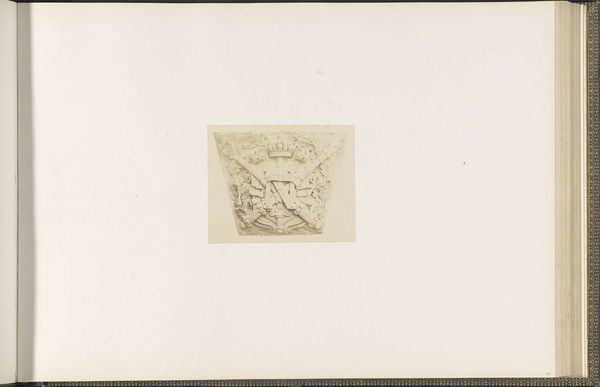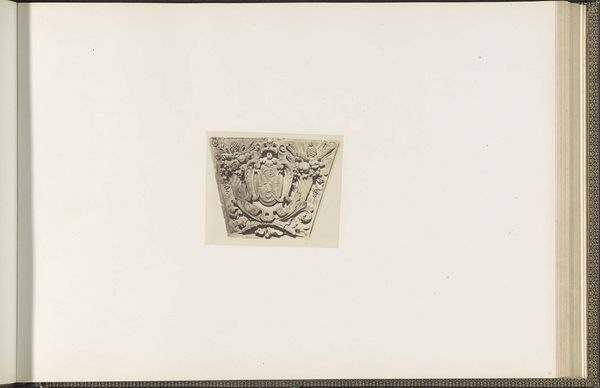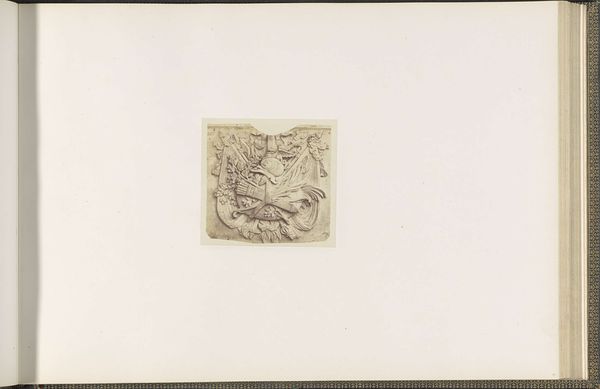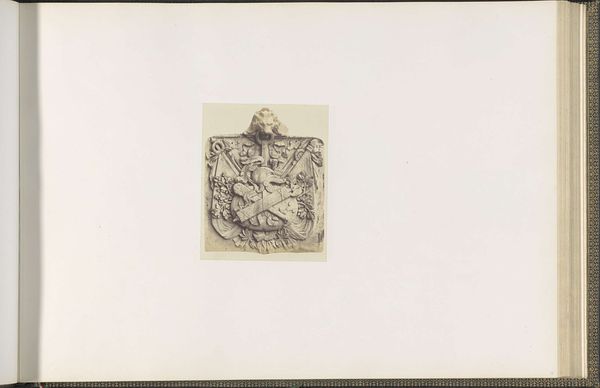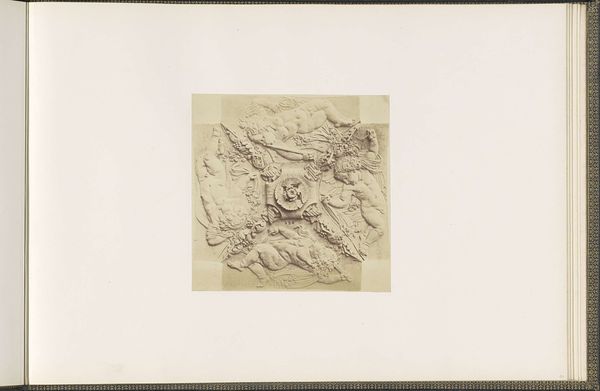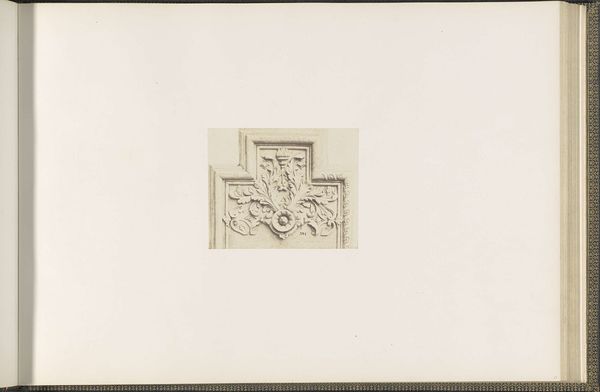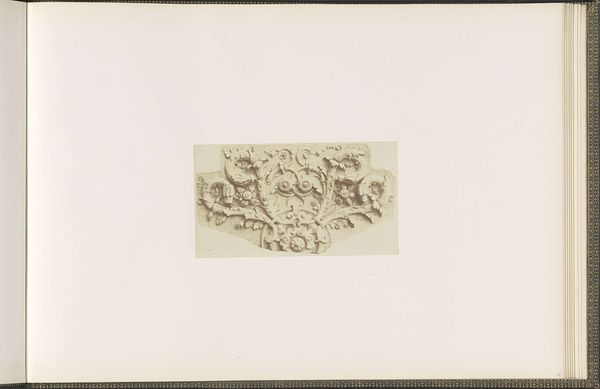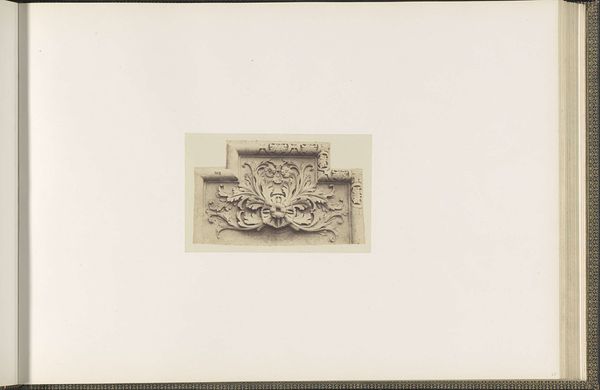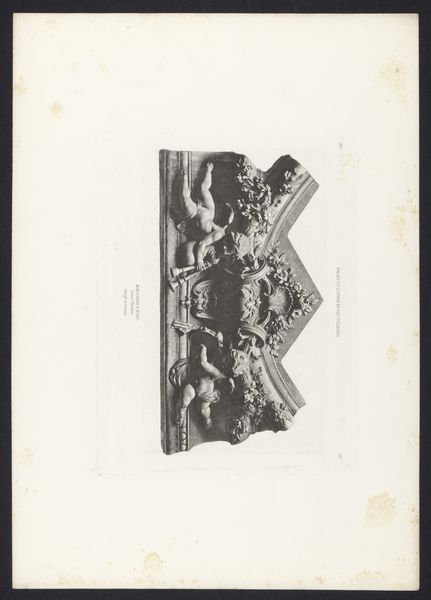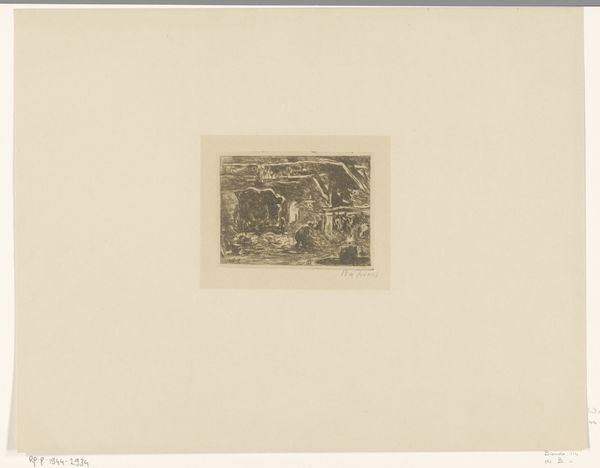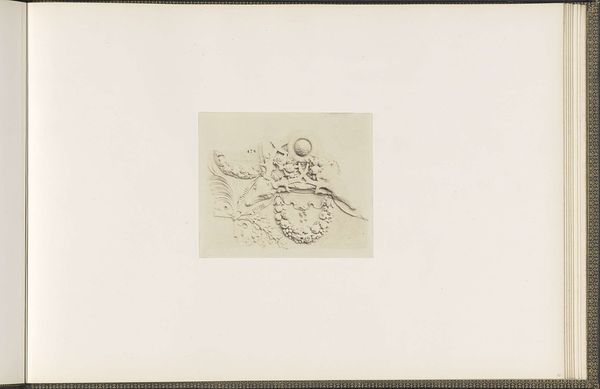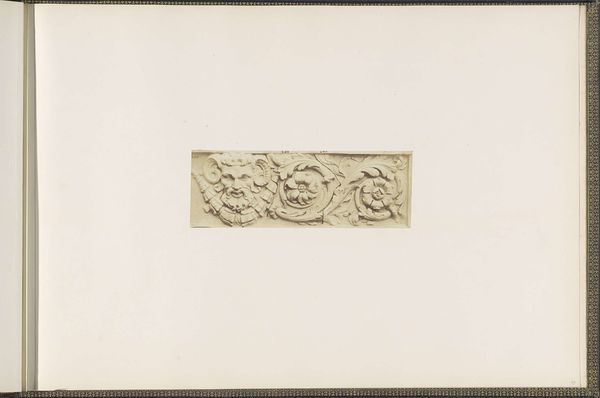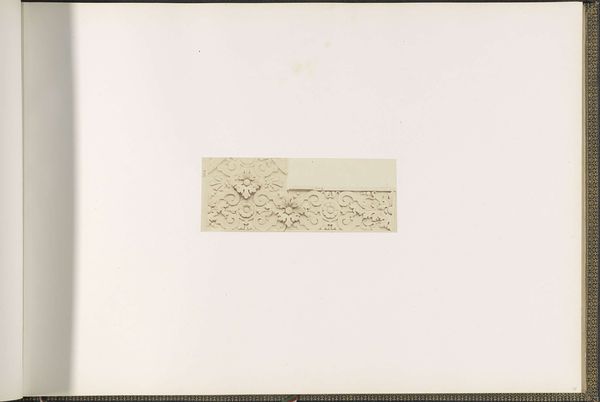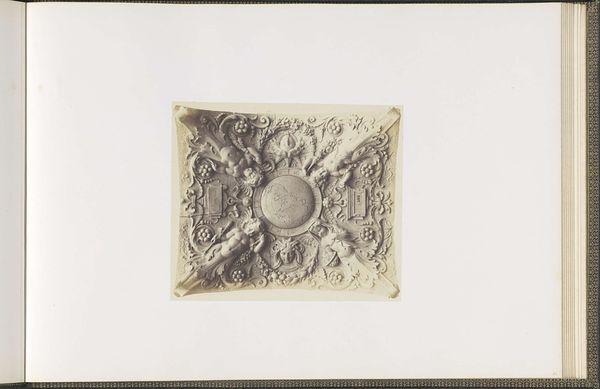
#
aged paper
#
homemade paper
#
ink paper printed
#
hand drawn type
#
personal sketchbook
#
hand-drawn typeface
#
ink colored
#
pen work
#
sketchbook drawing
#
sketchbook art
Dimensions: height 376 mm, width 523 mm
Copyright: Rijks Museum: Open Domain
This is Edouard Baldus’s photograph of a plaster cast intended for the decoration of the Palais du Louvre. Made in France, we can assume it dates to the mid-19th century, a time when photography was increasingly used to document and facilitate architectural projects. The image itself presents a fragment of ornate, classical-style ornamentation, reflecting the architectural tastes of the time, often employed to legitimize political power by evoking historical empires. Baldus, known for his architectural photography, here engages with the institution of the Louvre, a symbol of French cultural heritage and power. Was Baldus’s photograph simply a neutral record, or did it participate in constructing a particular image of French identity? Further research into the archives of the Louvre, architectural plans, and the broader context of French Second Empire aesthetics would shed light on the photograph’s role in shaping cultural values. The image reminds us that art is deeply embedded within social, political and institutional frameworks.
Comments
No comments
Be the first to comment and join the conversation on the ultimate creative platform.
